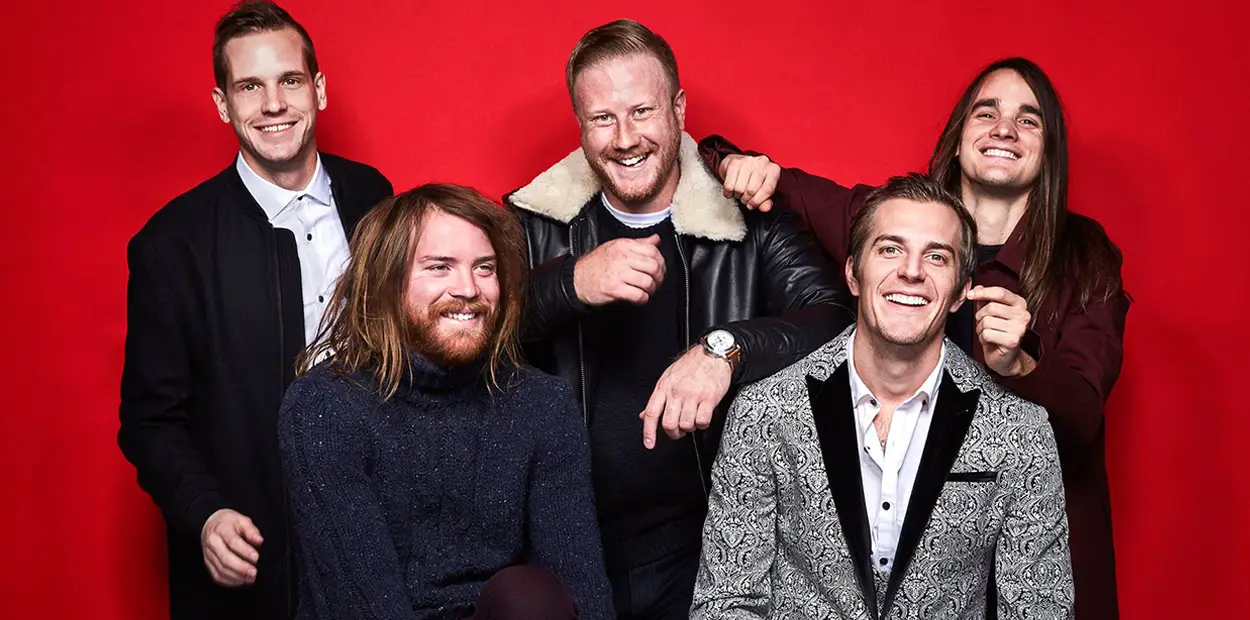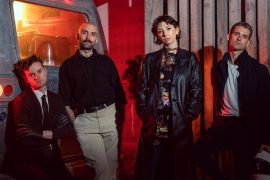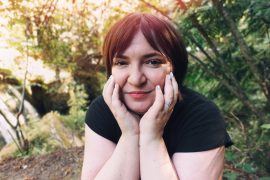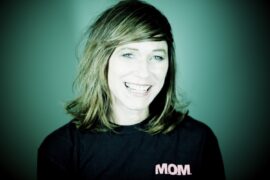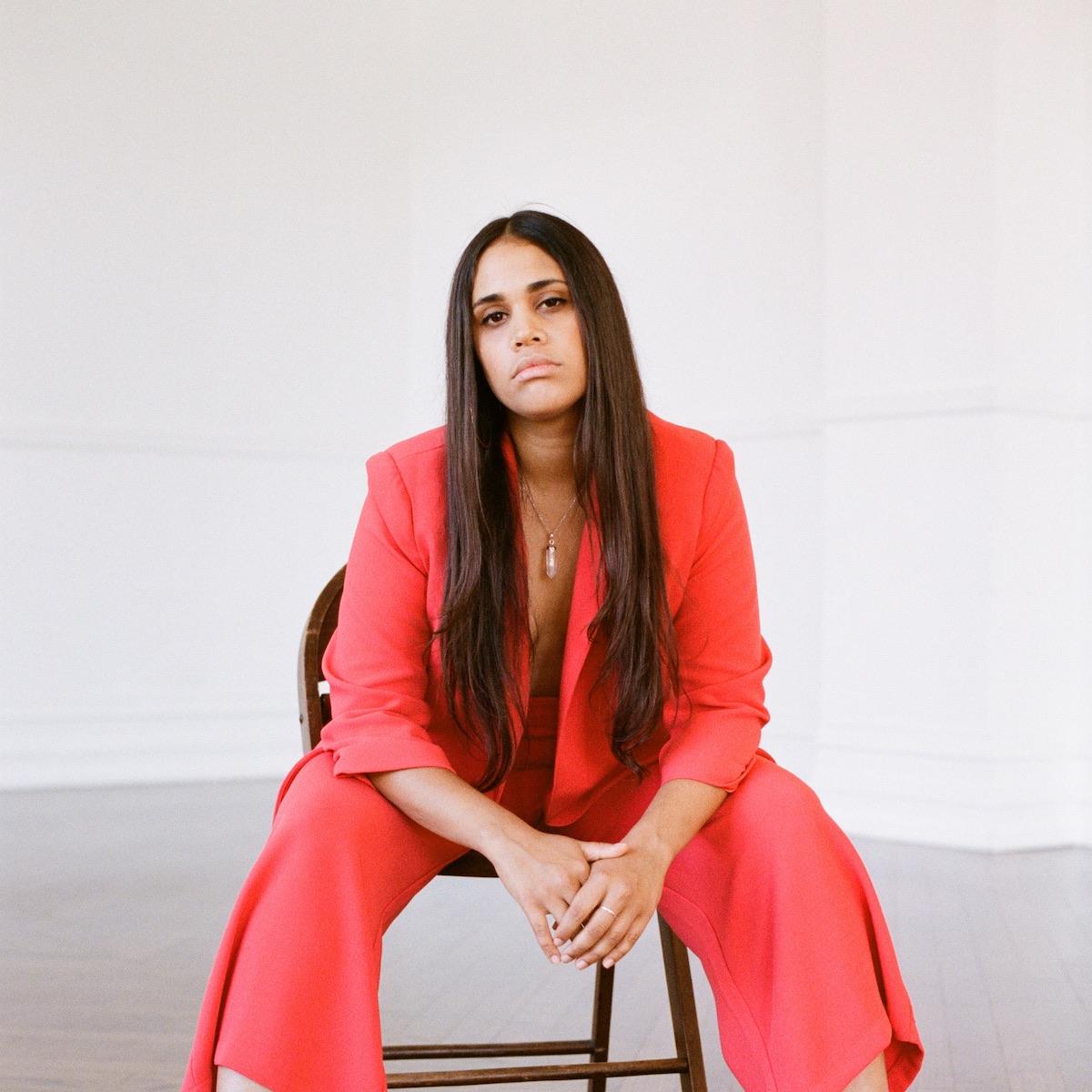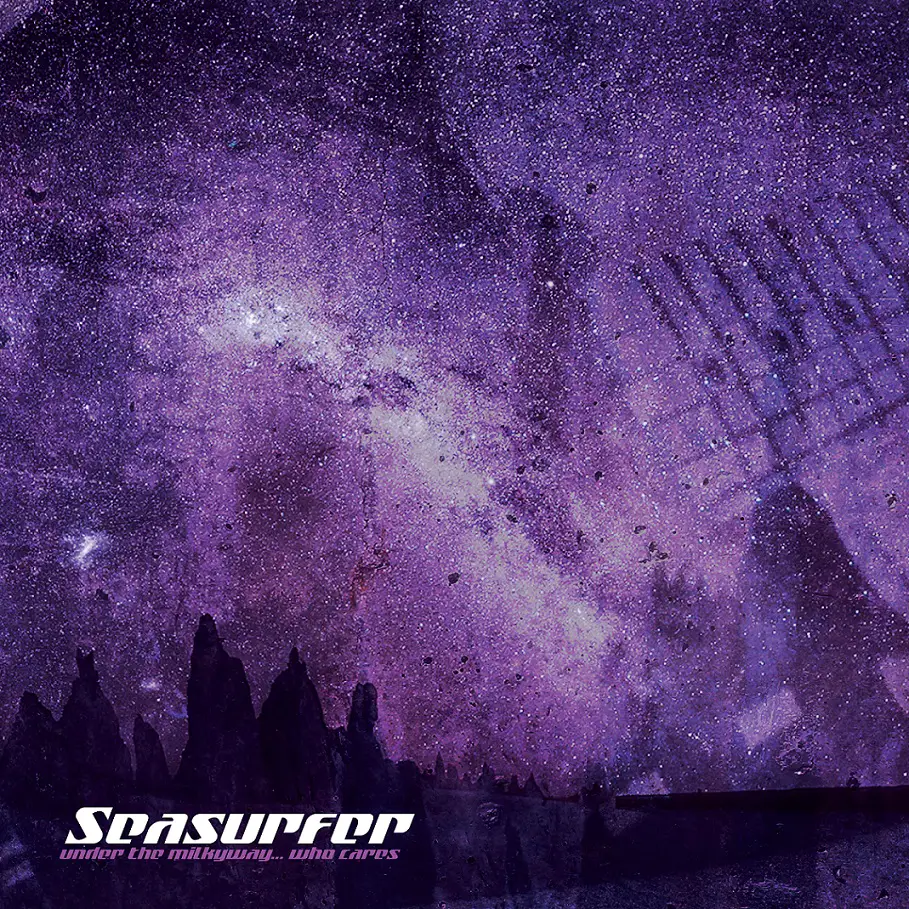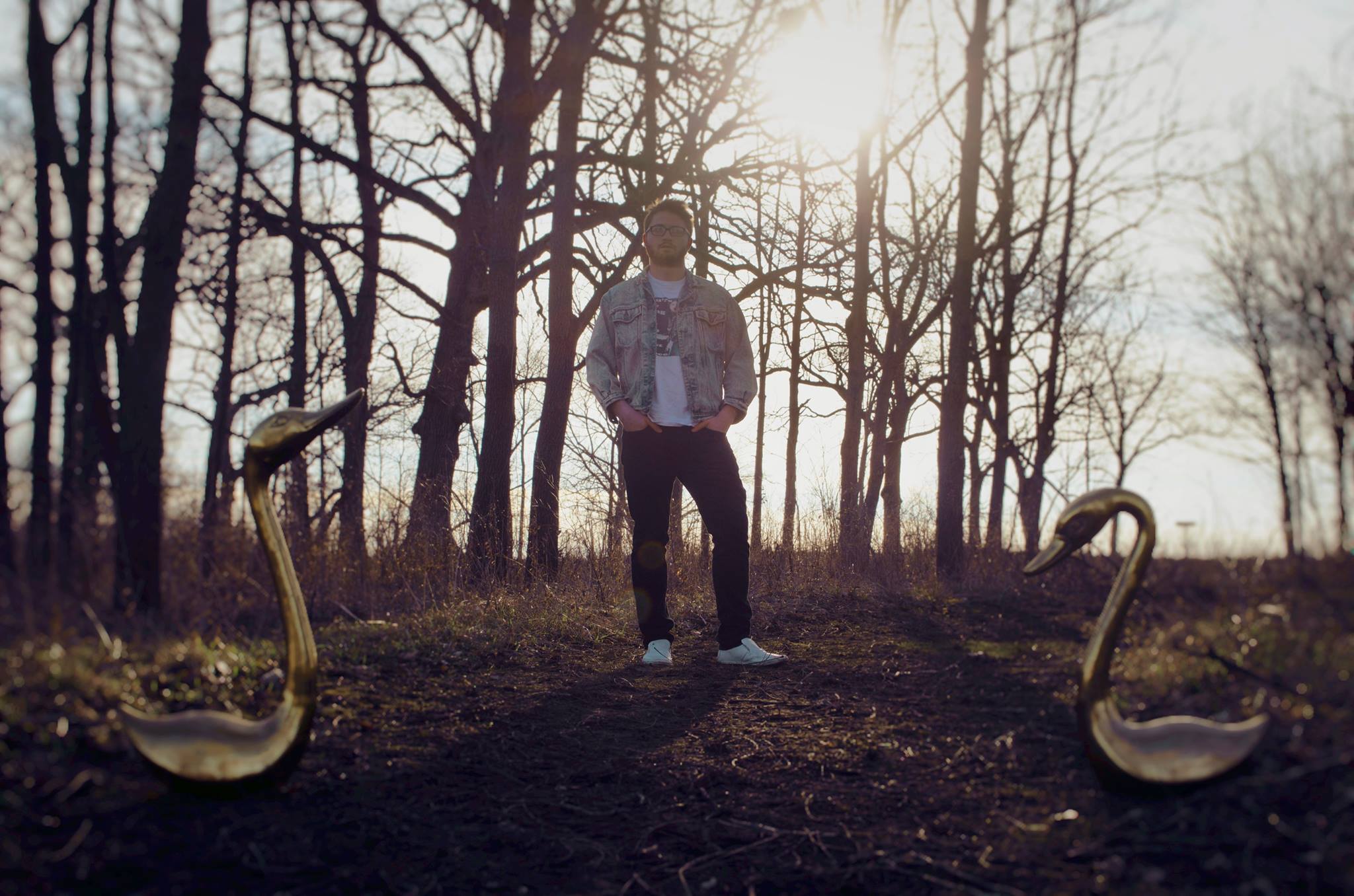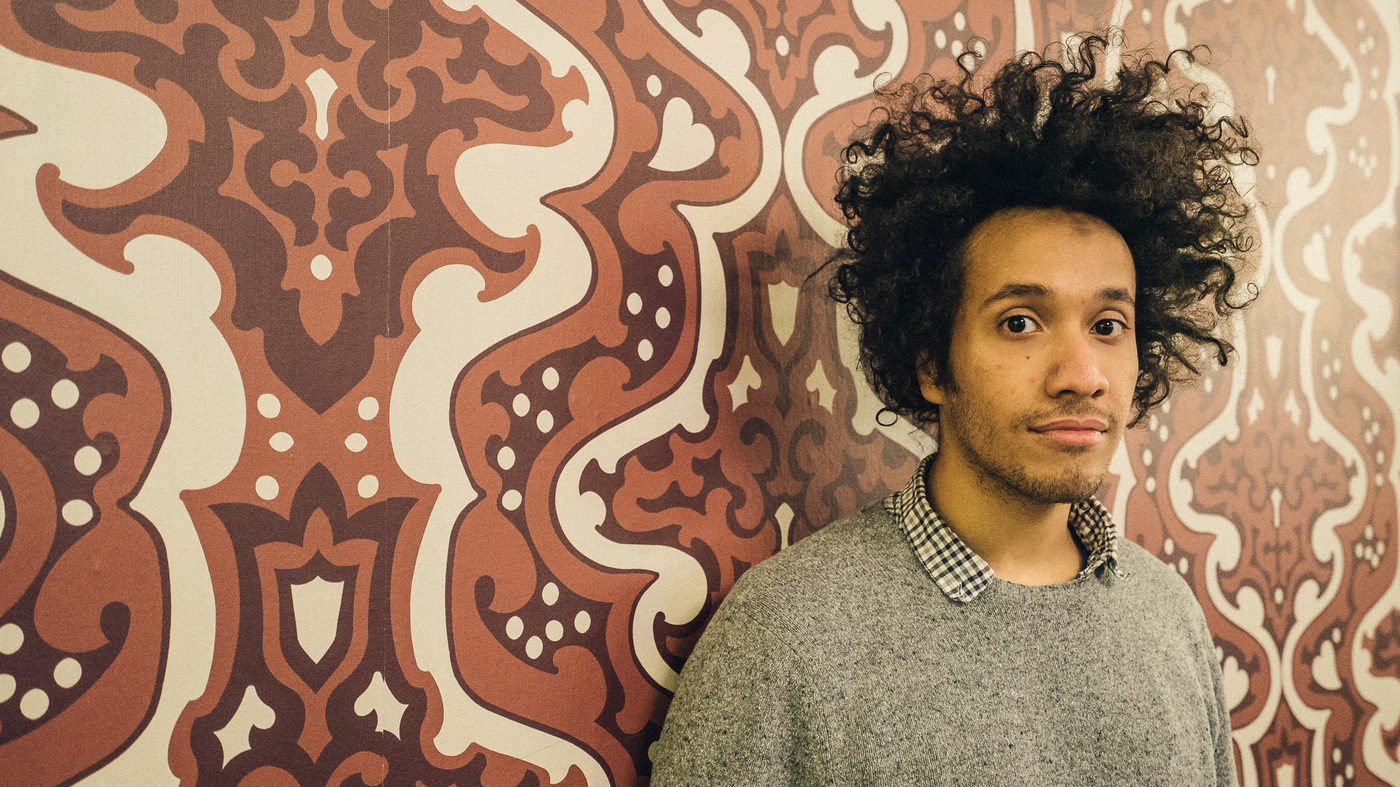[W]e make what we want to have ourselves surrounded with, and create our own environments.
The Maine are not a new band.
But, they are doing some pretty new things.
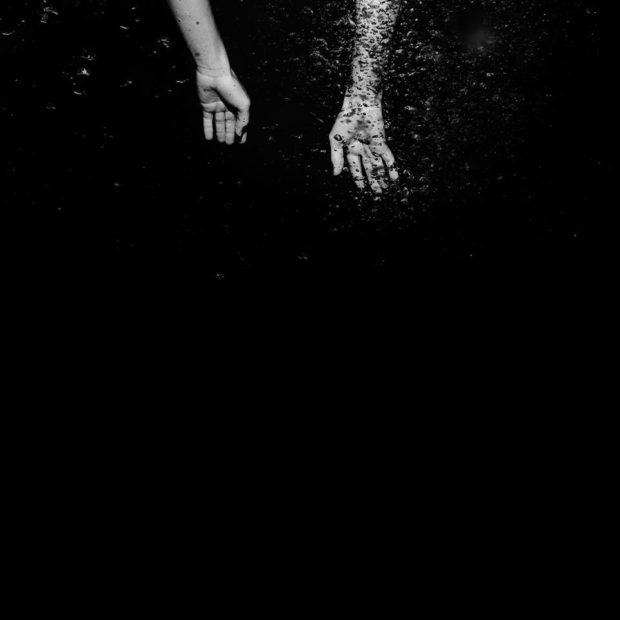
Take, for example, the fact that they have been a band for ten years now. Over the course of their musical tenure, they have cycled through various labels and aesthetic overhauls, but now they have ultimately decided to be wholly independent. Yes — a band that has well established themselves have, in fact, separated themselves from the corporate dredge of the industry, and decidedly reemerged as a completely autonomous entity.
And, it’s working.
The band’s first independent album, Lovely Little Lonely, was released in April to generally positive critical reviews. Their subsequent tour of the same name, which began at the end of April, filled theaters across the globe.
Bottom line, The Maine are doing just fine on their own, thank you very much.
Back in May of this year, whilst in the heart of their illusory Lovely Little Lonely Tour, Atwood Magazine was able to chat with The Maine’s guitarist, Kennedy Brock, at their Philadelphia show. During our chat, Brock notes that the band’s intensely loyal fanbase, mixed with the ongoing growth of social media, has undoubtedly aided in their continued relevance in the industry. Ten years is a long time, but The Maine are staying fresh as ever.
Watch: “Bad Behavior” – The Maine
A CONVERSATION WITH THE MAINE
Atwood Magazine: So, everybody knows that you’ve been a band for ten years now, which, congratulations, that’s amazing.
Kennedy Brock: Thank you!
What’s one thing that you’ve noticed in the industry, as the ten years have gone on, that has either changed drastically, or not changed at all?
Kennedy: Hmm. I mean, I would say, the one thing that’s definitely evolved but hasn’t really changed for us, has been the social media thing. It was — that was the staple foundation of how we started the band. You know, being able to reach out to people, because, you know, when Pat [Kirch] and Garrett [Nickelsen] started, they were still in high school. And now, we just try and come up with as many innovative ways to use it as we can, and it’s always kind of evolving. But, yeah, I think that’s one thing that’s definitely stayed the same, has been really trying to utilize social media to help ourselves network.
Is there one that has helped you more?
Kennedy: Yes and no, I mean — that’s what changes. In the beginning, it was MySpace, and that, obviously, we don’t really use that anymore. But, yeah, it’s just kind of trying to find ways, when things pop up, like, how can we make this our thing? Things like — we use our Snapchat, we do little like, “episode” shows. For instance, I’ll do one myself, that I like to call “Arts and Farts and Crafts,” and it’s just kind of a separate kind of outlet to have ourselves be constantly in your face. But, yeah, there’s obviously been — the way record sales go, and the way streaming things have happened, that kind of changed in the middle of this career. And it really — it didn’t affect us in the drastic way that it affects a major label in itself. I mean, we’re having the best tour of our career, [a] headliner. In the midst of all that, releasing music, and being funded completely by our fans. So, I mean, there’s obviously way more things that have changed.
And you mentioned the independent thing - you guys cycled through some labels for a while, and now you’re doing everything kind of on your own. What has that been like? Do you see that it’s been a more positive change?
Kennedy: Oh, I mean, we have way more fun. There were things about being on labels that definitely helped us get to where we are, and I’d say now there’s no real bad taste in our mouth about that, but it’s just — we’ve always been very idea-heavy, and trying to go our own way, and I think that it, for us, didn’t fit. We just wanted to be in control of everything. And we want to give and try to create an experience that is different for our fan base, and something that is worthwhile to them. And, yeah, I think the way that we go about things is a little different.
I think we’re still honestly growing, but I think that we have realized the success we’ve had, and I think that we’re very appreciative of it.
Sure! And have you noticed a positive reaction from the fans as well? Do you think the way that you now are operating as a band is affecting how people respond to you as a band?
Kennedy: Yeah. I mean, that too. Our fans know — for instance, we did our ten year celebration thing, and all of the people who came to that, from all different parts of the world, that, for me, was the realization of what kind of community we’re creating is. It was really a strange culture shock for me being there at the festival, because there were a couple thousand people there that I recognized. Like, way more than less; all of them. It was this really strange thing, like, these are all of our friends around the world, and I think it just breeds this different culture, where we’ve really made it about and have tried to explain that this is about the music for us; it’s about the whole experience. It’s about what we want, and what we wanted to see in bands when we were growing up. I think that that really — it goes into the way our fans work to help us. They do different things to build our community, and they’re very welcoming when new people come to the shows. You know, I hear so many times, people say, “Hey, I just made this friend, and now we’re friends!” And that, to me, is this really cool family kind of environment that has been propelling us forward.
That’s so awesome. And are you all from Phoenix?
Kennedy: Yeah, everybody, and pretty much everybody in the crew is, too; there’s just one guy that’s not.
Cool. So what was that music scene like, then, talking about community? Was there a “scene” there?
Kennedy: Uhh —
So, no.
Kennedy: Kind of; not really. I think it was more so the right roll of the dice of the right group of people together. I think that it’s just become more of a thing as we’ve moved out of there and seen what we like and don’t like about how different people run their respective “business,” in quotes , because you know, that’s what this is. And, yeah, you know, just how they run their band, and everything involved in that. We just take a different path sometimes.
Do you think, based on everything that you guys have been through, that you’ve been able to measure success in some way? Or do you think that you’re still always constantly growing?
Kennedy: I think we’re still honestly growing, but I think that we have realized the success we’ve had, and I think that we’re very appreciative of it. It’s just that each time we reach something, there’s a new goal, or “how can we do this better?” You know, “how can we make it feel exciting and fresh?” So I guess, yeah, we’re very happy and feel successful in what we’ve been able to accomplish, but we’re still hungry, which is cool.
Good! That’s how it should be.
Kennedy: Honestly, yeah. And this tour has made me feel so great about where we’ll be in years to come. Everybody’s so eyes-forward; we’re all just trekking along.
I think that’s kind of the goal every time we record, is put [ourselves] out of the comfort zone.
Get ten more years! That’s awesome. And the album is awesome; I love it. But tells a very cohesive story, and I think you did that intentionally?
Kennedy: Yeah, the cohesive thing, that was kind of an idea — we’ve been trying to kind of do that for a long time, kind of since some of the beginning stuff we’ve done. But I think this time, we really kept ourselves to it, and we were really like, “We’re going to make sure that this record has this cohesive feeling,” especially in this time where everyone just wants to make singles. We wanted to create that experience again. And, you know, I’m very, very happy with the way that it came out, and it’s been really exciting to see that right away with people. You know, our new stuff has been the loudest people have sung; anything new. And it’s so immediate; and for us, it makes us feel like we’re doing something right, and it gives us even more juice to keep on going.
Nice! And so now you’ve made this narrative album - do you usually focus on lyrics first, or instrumentation first?
Kennedy: It has changed sometimes. But most of the time, we have lyrics from when we’re doing demos, and a lot of times, even myself, I attach on to certain songs or a word or two that comes in a demo John [O’Callaghan] has had right from the beginning, and that’s kind of the way we’ve kind of gone about things for a long time. On this record in particular, there were no real words in any demo we had; they were all melodies, they were all made up words. I think that allowed us to have a kind of different appreciation for the music as we were working on it, and created a layer of what we really like about the songs, and I think that helped in the cohesiveness too; being able to string musical thoughts together as opposed to just lyrical content. And I know [that] John, he may never want to do that again, just because he was pulling out his hair at the end of this whole process, just because he was trying to put real words to made-up ideas of what it should sound like. But, yeah, I think that’s kind of the goal every time we record, is put [ourselves] out of the comfort zone. Step out of it, and that’s where we’re going to create something that is genuine, and the best work.
Right, right. Do you have a favorite lyric?
Kennedy: On the new record?
Yeah. Or any, I guess! But yes, on the new record specifically.
Kennedy: On the new record specifically, there’s kind of a simple line in the last of the title tracks, and it just says, “And then it all turned around.” And I just thought it was, for me, a really cool moment lyrically, and it made me picture our band and what we’ve been able to do. I mean, the whole thing is obviously special to me, and there’s lyrics all through it that connect. And what’s great is that they connect to different people differently, and that’s kind of the beauty of it. You know, John doesn’t really like to explain what the background of the lyrical content is, and that’s always a great decision in my mind, it just leaves it open to the person that needs that; whatever words come out of it.
Listen: “Lonely” – The Maine
Exactly! That’s what music should do, is be good for somebody in some way.
Kennedy: And that’s what music is best for!
And you mentioned those title tracks - they were very last minute, right? Like, they were the last thing you put on?
Kennedy: It was the last thing we put on, but it wasn’t the last thing we were thinking of.
Oh, okay, so you had kind of an intention of making that.
Kennedy: Yeah, there were goals there, and we were — we kind of had to create the bookends to be able to fit them in there. So, that’s why it was near the end, but it definitely — I mean, this record in general was the most discussion we’ve ever had about songs and things outside of just making music. Discussing it, and really coming up with a way to project what we wanted to, emotionally.
Very cool. So I guess to wrap up, is there a piece of advice that you’ve gotten, any time in the last ten years, that has stuck with you, and that has propelled you in continuing what you do?
Kennedy: You know, a long time ago, when we were on a label, a smart man told us that we can say “no.” I think early on we were kind of pushed down a path that we didn’t know if we wanted to be going down, and I think that for us, it was really crucial to hear that at that time. It meant more than that we could just say “no” about something; it meant that we were in charge of our own fate, and that really was something that stuck with me at least. So I think, yeah, we make what we want to have ourselves surrounded with, and create our own environments.


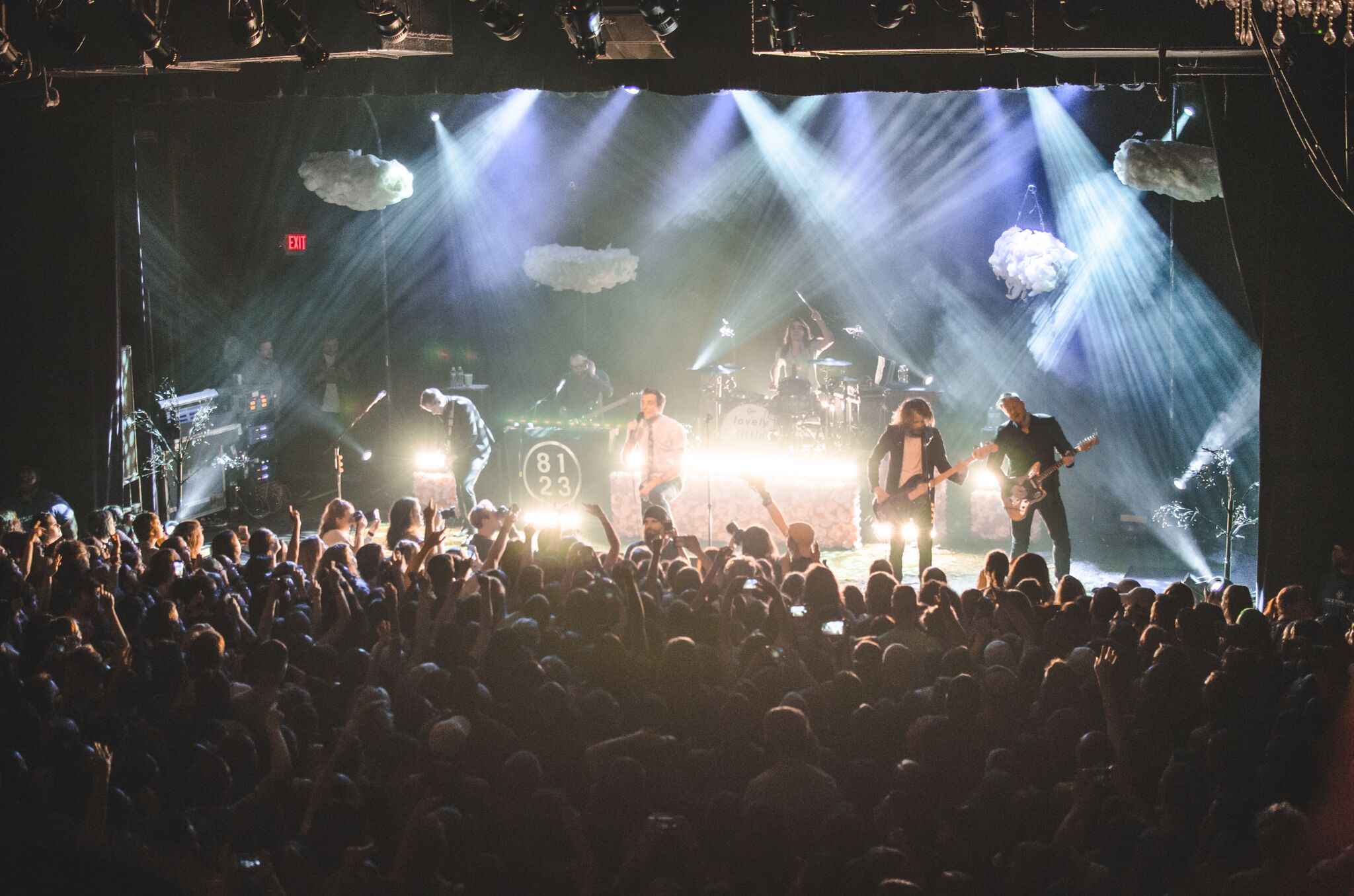

— — — —

